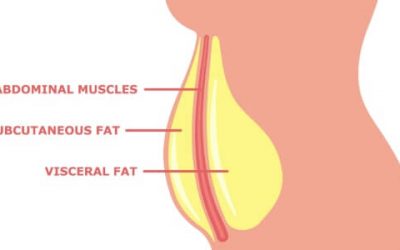In nutrition and life, everything changes. Items like floppy disks, pagers and cassette tapes are outdated. Political views like segregation and women’s right to vote are no longer relevant. As for the world of nutrition, it seems like things change every week. So much so that it can be a bit confusing to separate facts from just another fad. To help you make sense out of the mess, we’ve listed some tried and true nutritional rules that have stood the test of time. Here are some we hope can help you on your nutrition journey.
Learn to compromise
Choosing to eat healthy requires a lot of compromise. You can’t always eat that bag of Doritos after lunch, and you may have to force down that healthy plate of greens. The point is that healthy eating requires you to learn to eat some healthy foods you dislike, and eat less of some junk foods you love. You must accept this fact and develop self control to make healthy eating decisions if you want to make a permanent diet change.
Food is medicine
Every meal presents an opportunity to improve your physical and emotional well being. What you eat influences not only your overall health, but also how you feel. To prove this, pay attention to how you feel after you eat a meal ripe with fruits and veggies compared to a heavily processed meal of fats and starches. You are sure to notice a difference in your mood.
So how do you differentiate the good foods from the bad? For one, if you can’t pronounce the ingredient you’re eating, it’s likely not good for you. For example, foods containing autolyzed, aspartame, and sodium benzoate should be avoided. On the other hand, usually whole foods are ones you’ll want to eat more of. Just about anything in the produce section of your supermarket is a good choice and can have a dramatic impact on your health and the way you feel.
You only get one body. Take care of it.
This is a fact of life. If you screw up this body, there’s no place to return it to for a replacement or refund. Take care of your body and appreciate your health. If you eat a poor diet for many years, you may develop incurable diseases such as diabetes and coronary heart disease.
Be a sugar opportunist
Some of us have sweet tooths by nature. But just because you love sugar doesn’t mean you have to reach for the Oreos or box of Sara Lee every time you’re craving. Instead, eat sugars that also do your body good. Try dates, grapes, mangos, chocolate almond milk or other foods that have nutritional value in addition to sugar.
Plan for cheat days
Let’s face it, we’re all human and what we want to eat is not always the healthiest. That’s why most people who try to stick to a rigid diet fail. Forcing yourself to only eat healthy foods day after day will only make you long for junk foods even more, and suck the joy out of eating along the way. That’s why you need to plan ahead for cheat days/meals. This will provide you the freedom to enjoy the junk foods you love, and avoid the binge eating sessions where you break your diet in a moment of hedonistic rapture. When that happens, you’re left with nothing but feelings of defeat and the desire to give up.
Eat less. Eat more fruits and veggies. Exercise.
While there are thousands of books and diet plans out there that are quick to give you some convoluted plan to improve your health, eating right and taking care of your physical well-being is not rocket science. Perhaps the most tried and true method to do this is simpler than ever: eat less (smaller portion sizes), eat more fruits and veggies, and exercise. If you do one thing to change your diet and lifestyle, this is it.
While our nutritional experts know a lot about diet and nutrition, the rules we’ve presented above don’t take a brainiac to figure out. If you look a bit closer, you’ll notice that they’re all pretty much common sense. If you need help achieving your nutritional goals, give us a call and we’re more than happy to help you. But if you choose not to and are later faced with trying to figure out how to achieve your health goals on your own, just take a moment to reflect. You likely already know what to do.



